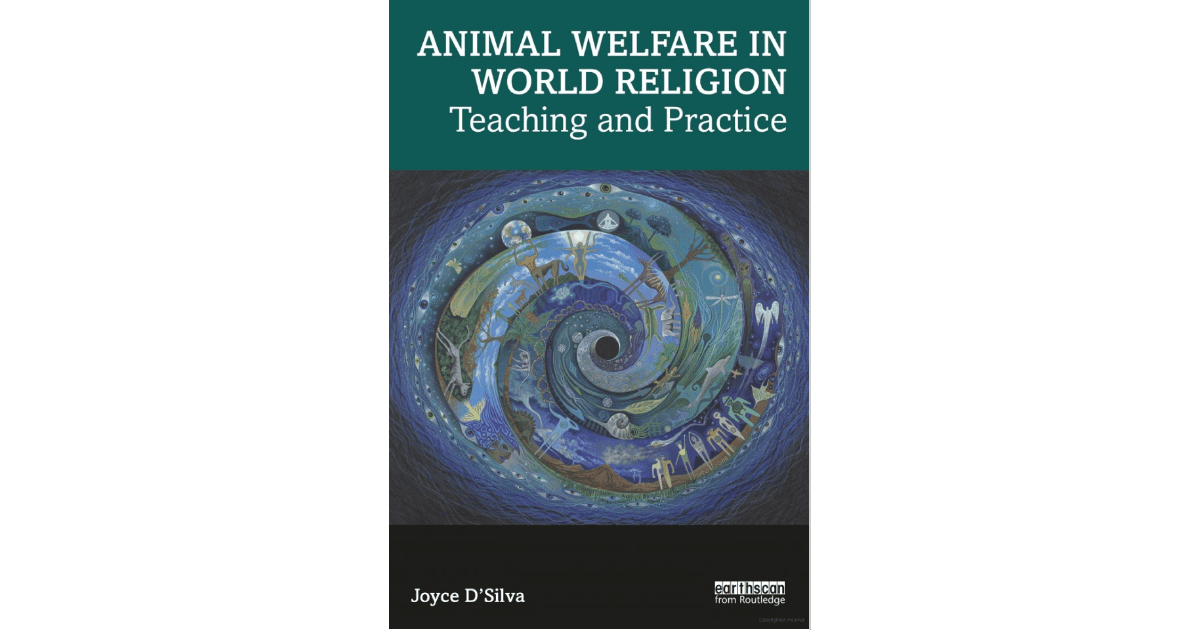
Jul 18, 2023 “Animal Welfare in World Religion” by Joyce D’Silva
Joyce D’Silva is a longtime animal advocate, having worked for Compassion in World Farming in various positions (including CEO) for over thirty years. She has also had a long-standing interest in the different faiths’ approaches to how humans should view and treat animals. Her career as a farmed animal advocate influences the book. For example, she examines what the different traditions say about raising animals in intensive confinement (or factory farms – a term she was advised to avoid). Modern intensive animal agriculture mistreats sentient animals, and I have long wondered how the cruelties involved in such intensive confinement and the industrial slaughter of farmed animals can be reconciled with Jewish and Muslim strictures that animal products are only kosher or halal if the animals concerned do not suffer!
The book covers the three Abrahamic religions (Islam, Judaism, and Christianity) and Hinduism, Buddhism, Jainism, Sikhism, Rastafarianism, and the religious traditions of the First Peoples in Australia and North America. D’Silva unearths a selection of eloquent texts from the examined faiths that indicate how non-human members of creation should be treated. In most instances, she explicitly addresses what the different traditions have to say about modern intensive agriculture, animal slaughter, vivisection, and the treatment of wildlife. Overall, the book is beautifully written and, at a relatively brief 192 pages, is an easy read.
D’Silva lays down a challenge at the end of the volume. She notes that animals worldwide are suffering at human hands despite the many eloquent calls in the texts of the different religious traditions exhorting humans to care for and relieve the suffering of the divine creation. She asks readers to take action to address animal suffering. To faith leaders, she requests that they should talk about the issue. D’Silva asks ordinary believers to ask their faith leaders to address the issue. She asks unbelievers to question their faith friends about the lack of attention to the problem of animal suffering and to press for action on the subject.
It should be noted that animal agriculture is a significant problem for the world. Growing cereals and legumes to feed animals raised intensively to produce products for human consumption significantly contributes to global biodiversity loss. Animal agriculture produces extensive pollution, while the production and consumption of animal products significantly impact climate change. It is unlikely that the world can limit global temperature rise to 1.5 or even 2.0 degrees if we continue to consume animal products at the current rate (or even worse, increase the world’s consumption of animal products as is projected by the Food and Agriculture Organization).


